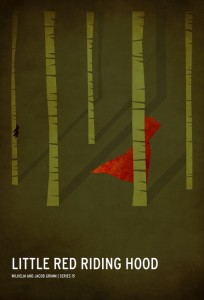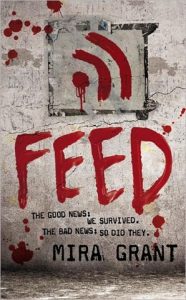Cory Doctorow: “Why Should Anyone Care?”
Cory Doctorow shares his thoughts about working at a bookstore and how that opened his eyes to how the book-producing industry chugs through the years. He also provides some practical thoughts on self-publishing based on his own experience. My favorite quote: “I knew I’d have to do some of the stuff my publisher had done, but like everyone doing something complicated for the first time, I dramatically underestimated how much work this would be. ”
Stacy Whitman: “Some Thoughts on Middle Grade Voice”
The editorial director of Tu Books shares her thoughts on voice in general and the middle grade voice in particular (I thought this article would follow up last week’s Wordplay podcast quite well). She focuses on how hard humor is, and why it’s really bad if your writing displays the difficulty of your undertaking.
Nathan Bransford: “Publishers Are Squandering Their Cachet On Imprints”
Nathan Bransford presents a post about how publishers lend credibility to authors associated with their brand name—and why that credibility may be squandered on lesser-known imprints and specialty groups. (I’d like to comment more on this, but I recognize more imprints than most people should, so I can’t really say which imprints are actually adding brand-name power to a book.)
Wordplay Podcast Episode 2: “Character, Plot, & Protagonists”
This week the Wordplay team has Ally Condie, the author of Matched, as a guest on episode 2.They talk about the difference between character-driven and plot-driven fiction, and why you need a balance between the two. They also harangue the idea of a paper cutout villain who doesn’t have believable motives or a certain degree of emotional complexity.
Writing Excuses 6.14: “Suspension of Disbelief”
The Writing Excuses crew has Patrick Rothfuss joining them for a podcast about suspending your reader’s disbelief. Some highlights: don’t make everything too tidy, don’t betray human nature, lay your groundwork, and make use of the slow build to absurdity. Rothfuss also highlights the concept of bathos, which boils down to undercutting serious or weighty things with commonplace events or thoughts.
Jon Schindehette: “Is Illustration a Viable and Productive Art Form?”
Illustration is the art of books, from two-page illustrated spreads to covers. In this post Jon Schindehette (creative director at Wizards of the Coast) briefly looks at illustration as an art form from an artist’s standpoint. He also addresses the viewpoint of an art director or editor. “[Art directors and editors] are responsible for ensure [sic] the artist that is chosen is appropriate for the task at hand, but they are also responsible for communicating the ‘needs of the text’ so that you [the illustrator] understand what success will look like.” If you’re an author looking into being your own publisher, you should also start thinking about what it takes to be your own art director as well.
Kristin Nelson: “In The Author’s Shoes”
Agent Kristin Nelson shares a conversation she had with an author who has recently changed agents. The author pointed out three things every author should be sure of before signing with an agent. Kristin adds her thoughts on each point. These points serve as a reminder that the author–agent relationship should be a partnership, and you should approach it as such. If you can’t ensure they’ll be a good business partner, you shouldn’t be signing with them.










